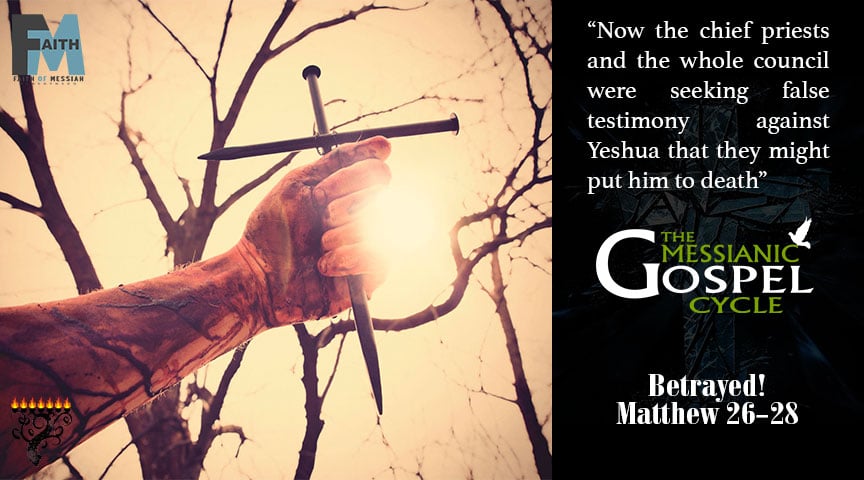The Messianic Gospel Cycle is a series studying the books of Matthew, Mark, Luke, John, and Acts from a Messiah-centered perspective. The cycle is divided up into 52 portions and is designed to be read over the course of a year. You can download the reading plan here.
Now it happened that when Yeshua had finished all these words, He said to His disciples, “You know that Passover comes in two days, and the Son of Man will be handed over to be executed.” Then the ruling priests and elders of the people were gathered together in the court of the high priest named Caiaphas. They plotted together in order that they might seize Yeshua by stealth and kill Him. “But not during the festival,” they were saying, “so there won’t be a riot among the people.”
Members only content


So much hereRyan. First on my list is when is the first day of unleavened? AViv 15? Then, about the exiles not being forgiven their sins, why not? Why would they be denied forgiveness if they repented and asked for mercy? That doesn’t seem accurate that your sins cannot be forgiven if you are in exile. Lastly, the cup that Yeshua asked to be removed simply meant the experience he was about to undergo….do I have your explanation right? It’s always been my understanding, rather then the wrath of God being poured out on him, which the words do not say…no wrath there.
Hi Carole,
Great questions!!!
The first day of unleavened bread is the 15th of Aviv.
With regards to the exiles, people have always been able to repent and ask for mercy to have their sins forgiven. It was only when someone lives in Israel, in the vicinity of the Tabernacle/Temple, that a sacrifice is required to remove the effects of the sins they have committed from God’s house. On a corporate level though, the sins that led to the exile were so great that God required a time period of punishment, not just the people to be repentant. I’m sure once the actual devastation of the Babylonian armies began, the people became very repentant, but there comes a point where God has given them enough chances and now judgment is unavoidable. As far as why the Babylonian exile was extended beyond 70 years, it is hard to say and the Bible doesn’t really explore the “why” of this. It could be that the people had not learned their lesson, or it could be that God had never intended to limit the exile to a mere 70 years and that they were misunderstanding Jeremiah’s prophecy from the get go.
Lastly, yes the text indicates that Yeshua was struggling with what must happen from a human perspective – frightful of the agony ahead, not that God was subjecting him to torture at that moment.